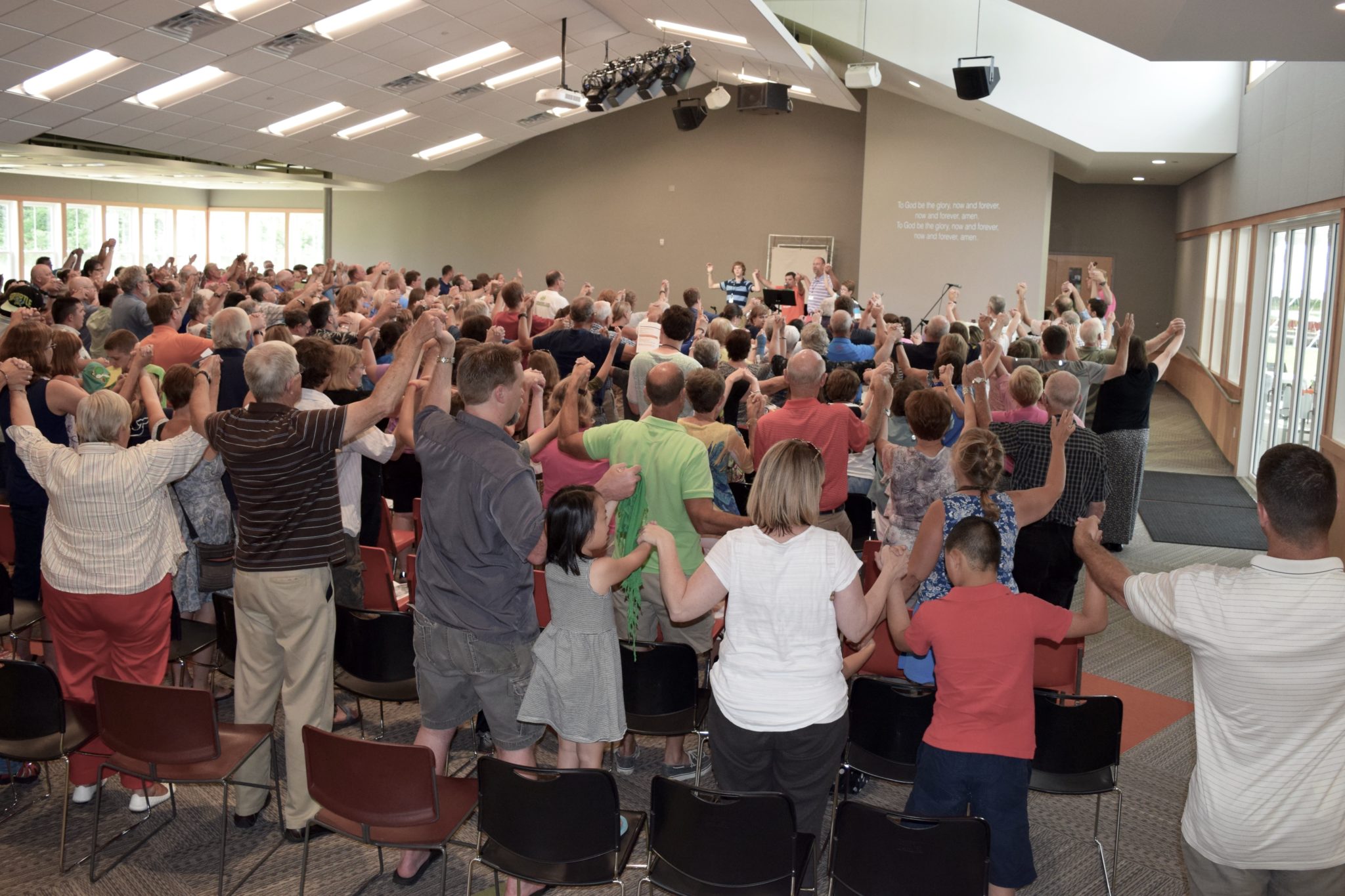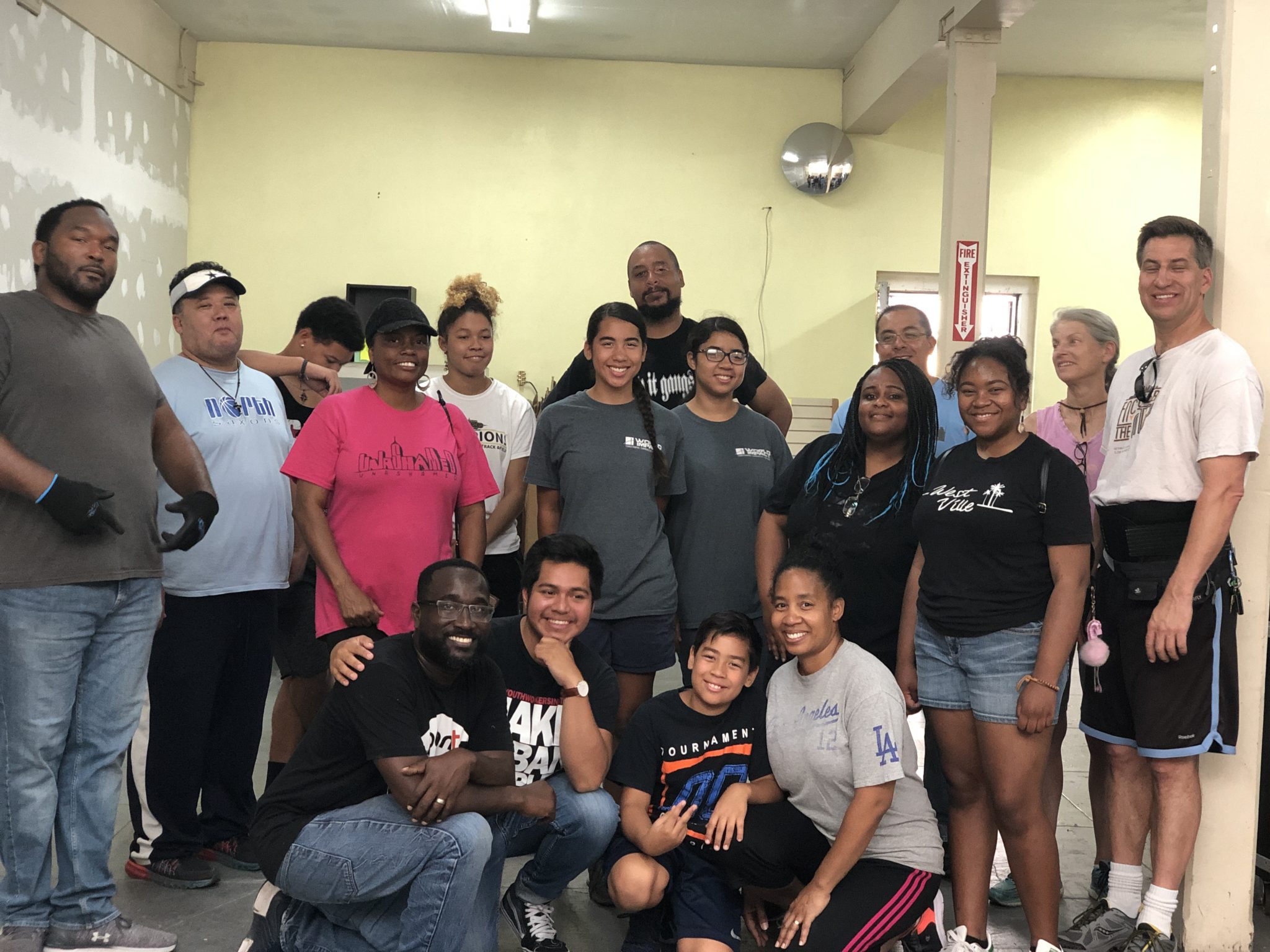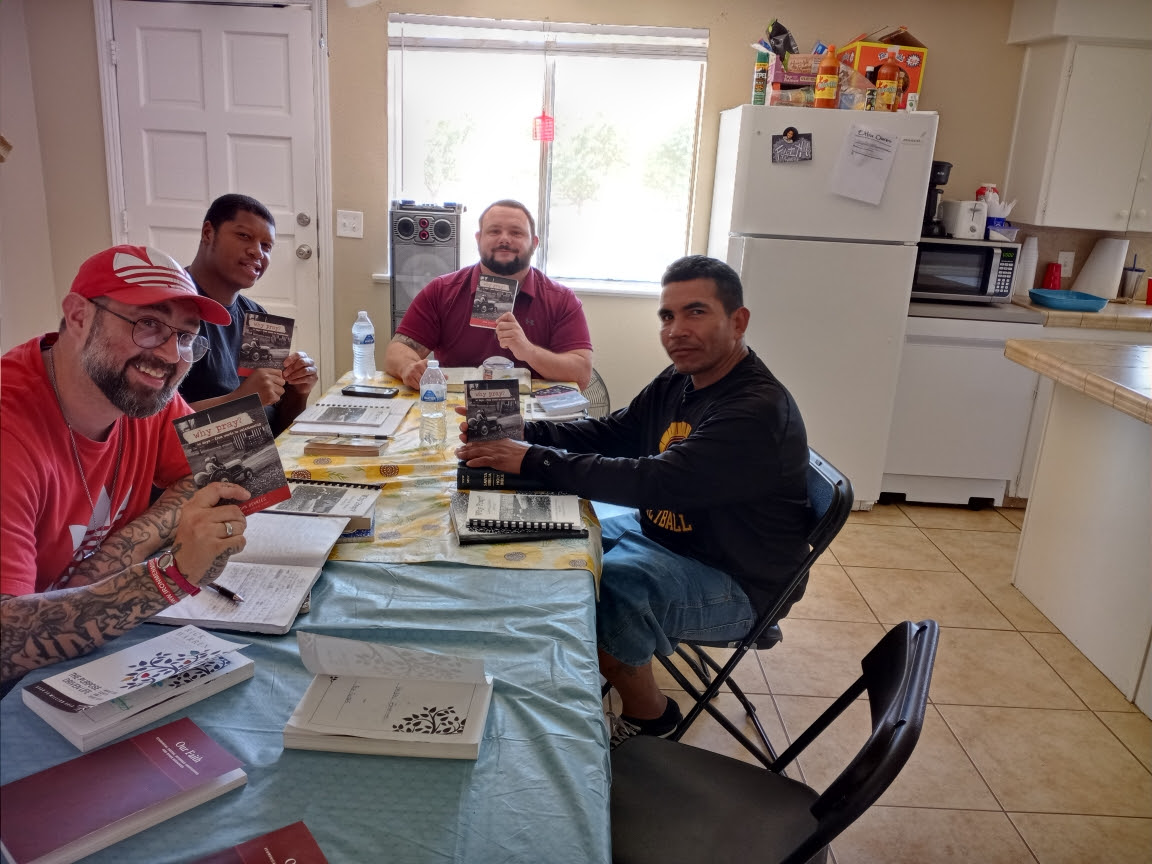Growing up, some of my most vivid church memories are Easter dresses and the sunrise service, counting the hanging light fixtures during choir songs, and fervently praying. I’d love to think I was praying for others or the kingdom, but mostly I was praying, “Don’t send me.” My church regularly included in-person updates from our local and domestic missionaries—moments for mission.
Missionaries brought PowerPoints and traditional items from around the world. They told amazing stories of transformation and new life. Most everyone in the church was inspired and encouraged. I was terrified. “Please, God. Just don’t send me there.” It didn’t really matter where the “there” was—Uganda or a downtown homeless shelter—I did not want to go.
I grew up believing that missions were for trips and for other people. They meant anyplace other than my neighbors and certainly not myself. People went on missions—to places—and then came back home. Missions were something my church did, but mission was not who we were. Or, at least, mission was not who I was.
Lately, I’ve seen a paradigm shift about church and mission. It’s no longer something that we (or others) do, but it’s more a striving toward being. Church is less a large group of people gathering together for Sunday worship and more small groups of people gathering together where life and community already flourish. As a result, churches meet people where they already are. Working, praising, and serving together, we incarnate God’s holy mission every day.
Many churches and church plants do a phenomenal job not only of local and global mission, but also of organizing mission as the central spoke around which everything else rotates. They are less a group of folks who do missions and more a group of folks organized around a common mission, namely living and learning like Jesus. These people and churches are mission outposts.
Thinking about the mission of Christ as an organizing principle for church feels new to me, but it’s oddly liberating. Instead of mission work being the jobs of others, it is a holy calling I can lean into in my day-to-day life. And I invite you to lean into this new paradigm with me, living mission in all of our moments.
As you begin—or continue—to live into mission every moment of the day, be inspired by these church plants that are organized around mission.
“At The Church of Benjamin’s Hope (TCOBH), we see mission as seeking a place of belonging for all people, regardless of visible ability. There truly are very few places where people of varying abilities can do life together. Our mission statement at TCOBH is ‘Connecting People of All Abilities with Jesus and One Another.’ Our mission in a nutshell is connection, as this is the part of life that so many people affected by disability lack. We connect through gathered worship, through meals around the table, through the communion meal, and through growing lasting and meaningful friendships between people who often lack friends. By creating a place of meaningful belonging for those whom our world often marginalizes, we are achieving our mission and growing a community that looks like the church God intended and Christ died for!”
—Eric Peterson, pastor

“I was on a silent retreat, listening and praying when I called one of my mentors and voiced my heart and my frustration. I said, ‘I just want a communal living house and the church to be the same thing,’ to which their response was, ‘Well, why not?’
“As I have wrestled with my hopes and talked about my dreams for the home, I have found that my hope is for the church to be a bigger place of belonging, of presence, and of authenticity that can be glossed over if we are only in proximity to one another for a few hours a week. To work out this hope, I tried to think back to the simplest way for these things to be seen in our already lived practices, and I came to the table: the gathering, the intentionality of making a meal, the cleaning up, the laughs, and the tears. The table will be an essential gathering space, one of both discipleship and fellowship.
“As Oikos is seeking to grow and expand upon our identity as church, as image-bearers of God, a direct link will be loving and serving our neighborhood. Though we are intentionally gathered together every day, our purpose is not just inward growth, but an outward mission.
“Our heart is to know our neighbors by name, to know their stories, their joys, their hurts, and to meet them exactly there. We are going to coffee shops, our jobs, little league, and dog parks and in the organic way people come into our lives, we are intentionally inviting them to be a part. This is so anti-cultural that this takes time; however, as you find people of peace, hope spreads.
“Simply, Oikos is a church plant that lives in community while making community, finding identity and purpose where we find home.”
—Savannah Clapper, pastor
“The Rock started several years ago in the living room of our home in Carson, California. At the time, I was an elementary school teacher who had also been given the opportunity to start my own charter middle school in Los Angeles, next to USC.
“The launch team was considerably unique in that most, if not all, of them were educators in the public school system. When I had the opportunity to start the church, I also launched the middle school with the same crew that was participating in Life Groups on Wednesday nights. We began to see our call as a ministry was to show up in the neighborhoods and communities that we had come from.

“The result was a school that grew and a church plant that began to see students from the public school and their families show up on Sunday mornings. Before we knew it, church life began to spill over into Monday through Friday because our staff showed up for families and kids in our community.
“The Lord has now opened the door for us to be on mission by creating these small microchurch expressions with small school-houses affiliated with them. Now, church is not just on Sunday, but an integrated Monday-through-Friday discipling the next generation that God is birthing on Sunday mornings.”
—Peter Watts, pastor
Sarah Lindstrom “never really wanted to start a church; [she] wanted to get in the trenches and tackle hard issues.” One of those issues is addiction. Sarah works with Forgotten Man Ministries as a chaplain in the Allegan County jail and started Rectify Church as a place where those coming out of addiction and incarceration could feel welcomed and supported, where they could find grace and healing. “Through my connections in the jail, I learned how hard it is for those coming out of incarceration—and their families—to feel comfortable in a traditional church.”
Rectify members meet each Tuesday evening, sharing a meal together to be fed physically before worshiping God and being fed spiritually. They do life together. In addition to regular worship and dinner, Rectify has recovery groups and is working to open Rectify House. Rectify House is a mens’ recovery home as an alternative for those who want to get their feet on the ground after coming out of jail. The home will have a case manager and will equip the men to continue in recovery and healing.
—Sarah Lindstrom, pastor
Faith Fighters is a new but growing church plant in Tulare, California. While their worship services have just celebrated a one-year anniversary, they are organized around mission. They do this through Faith Fighters’s Mens’ Discipleship Home. The home offers refuge and rehabilitation to men struggling with addiction, homelessness, unemployment, and lack of social support. At the Mens’ Discipleship Home, they find the grace of a loving God. They get care and support, community and respect.

This June, the home expanded again to include service to the community. The residents are offering free lawn maintenance to the underserved and elderly population in the community. This teaches the residents life and employment skills and offers the dignity of work. It allows them to give back to the community. The church plant and Discipleship Home are intertwined and flourishing together, holistically connected.
Tricia Bouma
Tricia Bouma previously served on the ministry center and church multiplication teams of the Reformed Church in America.



